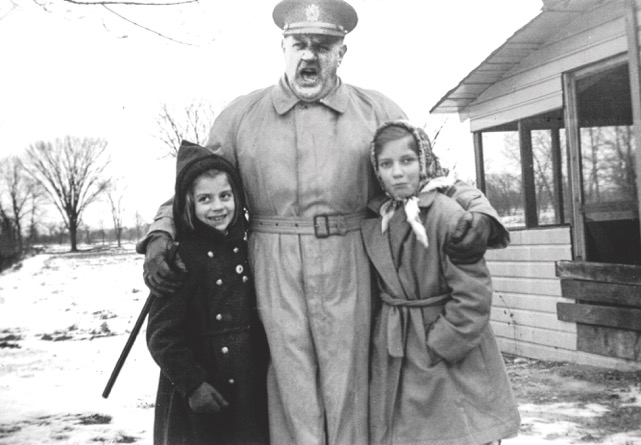Susan Roberts, special to The Sarnia Journal
(2016) Captain Melville Roy Clarke (1893-1971) was my only grandparent born in Canada, and the ultimate Canadian veteran.
As a preschooler, his three-fingered hand fascinated me. I would ask him where the missing digit used to be and he’d kindly point to the ring finger area of his left hand.
I wonder now if my childhood curiosity sparked flashbacks to the gas attack that changed his life. The finger was hit when he had raised his hand as a signal to the remaining men of his unit.
Roy Clarke enlisted on Aug. 9, 1914 in the 14th Battalion and by the following April he was presumed dead on the battlefield.
Stored among family photos are Grandpa’s yellowed paper notes. One reads:
“Wounded and gassed April 25th. Head, fore, left hand, right knee and leg. Bullet passed through back of knee, shrapnel at bottom of knee cap and three surface wounds at right side of knee, multiple wounds in legs and ankle,” he wrote.
He was actually reported killed in action and remained without medical aid for 24 hours.
“I received a considerable amount of gas for at one stage I remember tearing at my throat and collar,” he wrote.
After that, his memory was a blank for more than five days.
He woke up in a casualty clearing station. His lungs and internal organs were severely compromised. The ring finger had been amputated and a fractured thumb reset.
“(The) doctor informed me that I would not be alive in six months,” he wrote.
But Grandpa proved them wrong. He returned to Canada and underwent numerous operations.
And in October of 1916 he headed back overseas again, joining the 130th Battalion, a unit for which he helped recruit.
But on reaching England he suffered a relapse of the old wounds in his legs and stomach.
“I was compelled to appear before a medical board and informed that I must return to Canada,” he noted sadly.
Back home, in August of 1919, he underwent more emergency surgery and was discharged, declared medically unfit for service.
The old war wounds never did completely heal and a decade later he was hospitalized again.
Nevertheless, in 1938 he was hired as the very first Custom Officer at the shiny new Blue Water Bridge.
And the following year, with the eruption of the Second World War, the desire to relist was stirred again. He wrote that he was eager to serve with his four sons overseas.
On Aug. 11, 1942, a lieutenant from the Veterans Guard of Canada approached the men working at the bridge. The very next day, Grandpa wrote to them and two months later, his employer, The Collection of Customs, received a letter.
“Dear Sir,” it read. “The circumstance surrounding my assumption of Military Services is that at the outbreak of the present war I put in my application for military services…I have instructions to report for duty (on) Tuesday, Oct. 13th, 1942… it is my earnest desire to not only serve in the armed forces in this war but to serve overseas.”
Though he never made it back to the front, Melville Roy Clarke served as a lieutenant in the Veterans Guard in Petawawa and Port Arthur, Ont.
He died in 1971, 56 years after he was presumed lost on the battlefield.
Susan Roberts is a Sarnia resident and proud granddaughter


